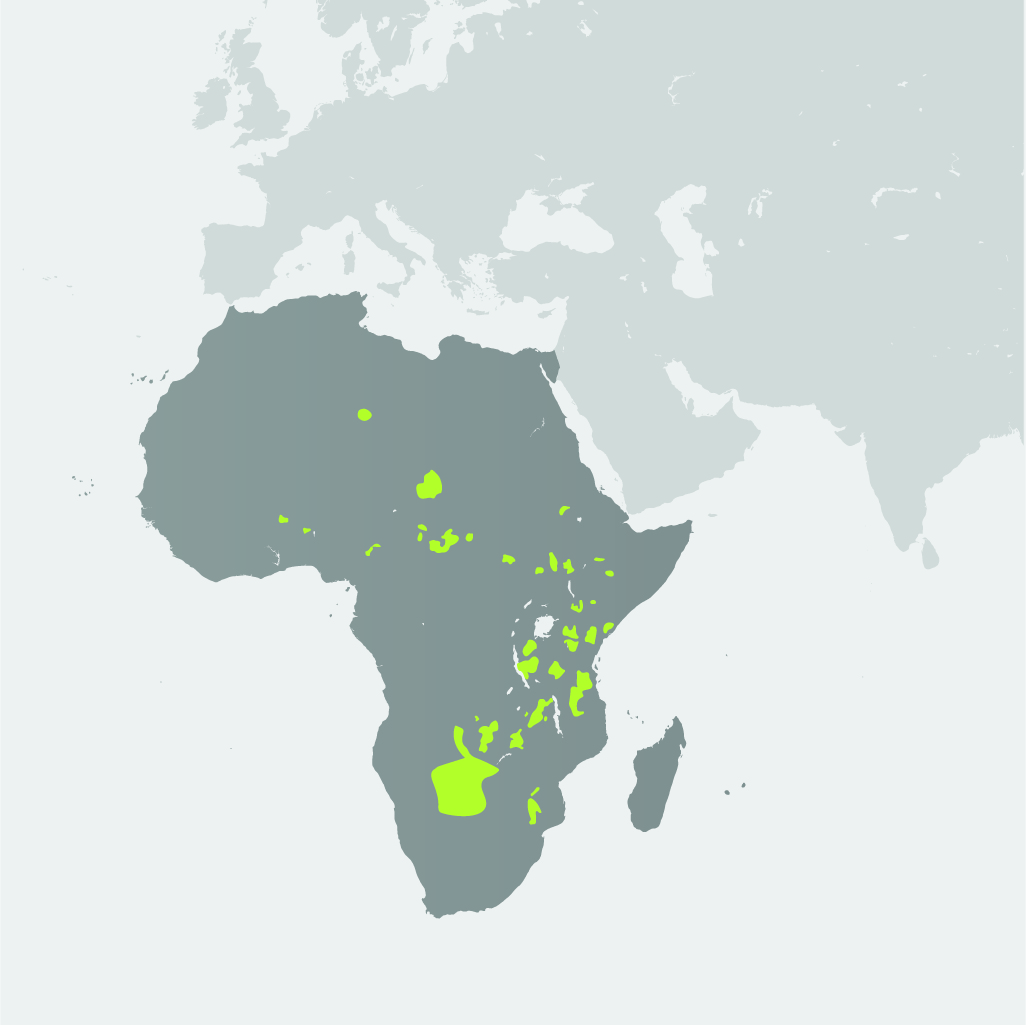African Wild Dog
"The Painted Wolf" by Kei Acedera (digital)
“It was the big ears, beautiful colorful patterns and elegant shapes of the “Painted Wolf” that first captivated me to want to draw them. To learn they are not only powerful hunters but also highly social animals intrigues me even more. They are beautiful predators that play a vital role in the African ecosystem.”
Your purchase is helping Expedition Art and Saving Species purchase land in Sumatra! Learn more about the project.
Habitat
The range of the African wild dog originally extended throughout sub-Saharan Africa, with the exception of tropical rainforests, jungles and desert. Their habitat has been significantly reduced in modern times and they are now restricted to areas of southern and eastern Africa, primarily in Botswana and Tanzania. They prefer the dense bushland but are also often found in the open plains. Much of their habitat has become fragmented due to the expansion of human populations.
Family Life
African wild dogs live in packs that range from 10 to more than 40 individuals. They are highly social creatures and are characterized by a variety of unique behaviors. None of the members of a pack will breed except for the dominant male and female. The female has a litter of 2-20 pups and will stay in the den with them for the first month. All members of the pack then contribute to caring for the pups. Social interactions include communication by touch, actions and vocalizations.
Lifespan
The life expectancy of the African wild dog outside of captivity is around 10 years. They have been observed to live up to 17 years in captivity.
Hunting Habits/Diet
African wild dogs primarily prey on large mammals and prefer medium-sized antelope. They will occasionally pursue larger species but are not often successful in achieving these kills. When their preferred prey is not available, they will supplement their diet with rodents, lizards, birds and insects.
Population
There are only approximately 5,000 African wild dogs remaining.
Fun Fact
There are five known subspecies of the African wild dog, distinguished by geographic region. Each of their paws has only four toes. African wild dogs can reach speeds of more than 44 miles per hour while sprinting. They are commonly known as painted hunting dogs.
Why are they Endangered?
African wild dogs are constantly threatened. Humans kill wild dogs, sometimes accidentally, but often times when their livelihood is put into jeopardy. Wild dogs that encounter human populations with vested interest in livestock and agriculture are put into harms way. Expansion of human populations into their habitat is also potentially devastating. Diseases such as rabies and distemper pose an immediate threat to the survival of African wild dogs, as well as habitat loss and competition with larger predators.
Status
Endangered

